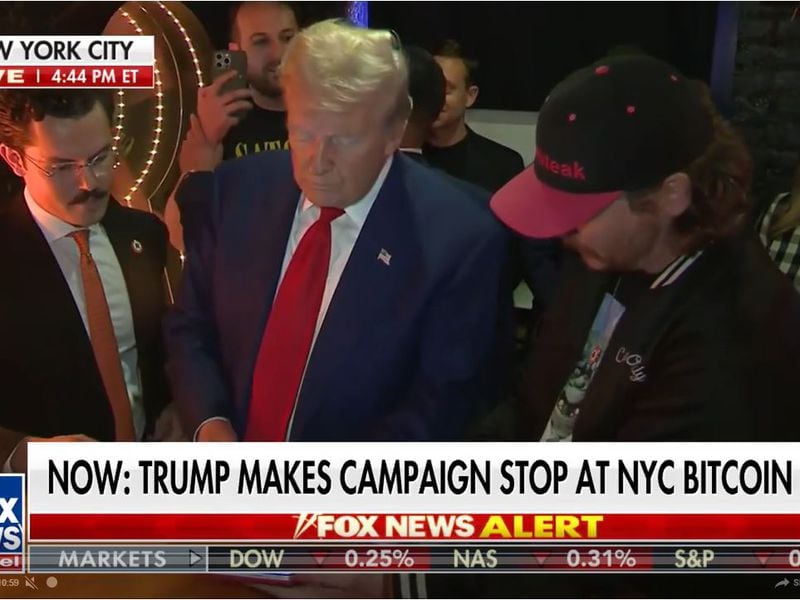-
Goldman Sachs, Morgan Stanley, Bank of America and other Wall Street banks continued buying shares of the spot bitcoin exchange-traded funds on behalf of clients.
-
While allocations barely changed, most likely due to uneventful price action in bitcoin, the fourth quarter could see renewed interest sparked by recent new all-time highs.
Wealth management clients of Wall Street banks like Goldman Sachs, Bank of America and Morgan Stanley in the third quarter continued to modestly accumulate (or trade) bitcoin (BTC) via spot bitcoin exchange-traded funds. Given the huge spike in crypto prices following last week’s U.S. presidential election, it’s possible the action will perk up in the fourth quarter.
“The 13F filings mirror the tepid price action in bitcoin in Q3,” said James Van Straten, senior analyst at CoinDesk. “Most institutions are slow to deploy capital and to observe trends, and didn’t take the initiative to front-run a historically bullish Q4.”
Goldman Sachs reported holding spot bitcoin ETF shares worth $710 million in the quarter that ended Sept. 30, as clients’ allocations into the ETFs nearly doubled, up from $418 million in the previous quarter. Most of the bank’s shares were in BlackRock’s iShares Bitcoin Trust (IBIT), in which it held just shy of 13 million shares.
Other top-tier banks/wealth management operations, including Morgan Stanley, Cantor Fitzgerald, Royal Bank of Canada, Bank of America, UBS and HSBC, didn’t add to or subtract much from their positions. A new entrant was Australian investment bank Macquarie Group, which purchased 132,355 shares of IBIT worth $4.8 million. Wells Fargo, which has a very minor stake in the ETFs, held most of its shares in the Grayscale Bitcoin Trust (GBTC) and Grayscale Bitcoin Mini Trust (BTC).
The positions were reported in 13F filings, a quarterly report that institutional investors with over $100 million in assets under management are required to file to disclose their holdings of certain securities. The deadline for the third quarter was Thursday.
BlackRock disclosed a stake of 2.54 million shares, worth $91.6 million as of Sept. 30, in its own fund.
The three-month period from the start of July to the end of September signaled a period of flat to downward price action for bitcoin, with the price largely ranging from $53,000 to $66,000. This followed the flat to downward price action during much of the second quarter, so it’s possible the tepid institutional interest reflected the pall that sat over the market.
Things, of course, have changed in a big way in the fourth quarter amid the run-up to and following the election of crypto-friendly Donald Trump to the U.S. presidency. Bitcoin blasted out of its multi-month range, quickly taking out March’s record of $73,700 and continuing this week to as high as $93,400.
The recent price action, combined with a hoped-for crypto embrace by the Trump administration taking office in January might inspire a good deal of “fear of missing out” (FOMO) in institutional players and their clients. It’s at least somewhat possible the next batch of 13Fs coming after the start of 2025 could prove far more interesting than this quarter’s.
“I expect a lot of scrambling behind the scenes to make sure institutions have at the bare minimum a 1% allocation due to crypto-friendly president Donald Trump and bitcoin breaking,” van Straten said.

![[Action required] Your RSS.app Trial has Expired.](https://8v.com/info/wp-content/uploads/2026/01/rss-app-cfAqZL-75x75.png)












![[Action required] Your RSS.app Trial has Expired.](https://8v.com/info/wp-content/uploads/2026/01/rss-app-cfAqZL-350x250.png)










